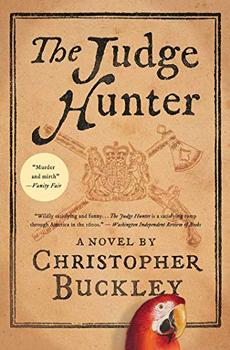Summary | Excerpt | Reviews | Beyond the book | Read-Alikes | Genres & Themes | Author Bio

"…she and I became as close as fish and the water in which they swim, no secret too intimate for us to share."
The narrator of Lucy Jago's A Net for Small Fishes is the witty and observant Anne Turner, a woman whose ambition, drive and resourcefulness shine through every page. In the above quote, as Anne reflects on the connection she has formed with the noblewoman Frances Howard, it feels as if the deep power of female friendship can shelter these two women from the harsh world around them. Yet that friendship is put to the test time and time again through the events that spiral in Jago's novel. In the hothouse of the Jacobean court, the water in which "fish" swim soon reaches its boiling point. Frances, trapped in an abusive marriage, desperately seeks a way to escape and to remarry, and Anne's own precarious financial situation begins to slip ever closer to deep poverty. The women team up, making desperate attempts to reach autonomy and independence in the patriarchal world of Early Modern England, and despite the limitations placed on them because of their gender and classes, they manage to pull a victory from a terrible situation. Yet such victory comes at an unspeakable price, which the friends must try to navigate together as the novel treks onwards.
In A Net for Small Fishes, documentary producer and biographer Jago has elevated a forgotten historical figure onto a major stage. Some of the names peppering the novel will be recognized by fans of TV shows like The Tudors and Reign; for example, the diametrically opposed queens of England and Scotland, Elizabeth Tudor and Mary Stuart, are mentioned. Yet the main characters are ones that may not be quite as recognizable. Readers may not know off the top of their heads the identities of the Earls of Essex, Somerset or Northampton. But by the end of this book, they most certainly will remember each and every one of those names and will be hard-pressed to forget the trials and tribulations suffered by the novel's characters.
As a historian of Jacobean England myself, I leapt at the chance to read and review A Net for Small Fishes. My own research centers on the art historical treatment of the favorites of King James, and I had already researched and written on Robert Carr, the Earl of Somerset, and on Frances Howard. Jago's writing makes these characters jump off the page in a way that is not always possible in historical writing. Still, there were a few details that I questioned. For example, Jago mentions several times that Carr depended on the king since birth, though to my knowledge they did not meet until Carr was about 20 years old. I also disagreed with some of her depictions of King James and the ways in which he treated his favorites, as well as queer sexuality in the Jacobean court — while she accurately represents public opinion of sodomy and the often-unspoken public knowledge that James was involved in queer relationships with his favorites, she leans heavily on his older age in comparison to his favorites in a way that makes him come off as predatory. However, on the whole, Jago paints a realistic, believable portrait of early 17th-century London. I particularly enjoyed her close attention to describing the dress of nobility; as her narrator Anne is a tailor and fashion designer, it made sense for those details to be the ones that stood out.
For me, reading this novel was also a chance to see many of the events that I study presented from a different perspective. Rather than focusing on James's relationships with his favorites, Jago places women at the center of this story in a way that is often not seen in historical narrative. I appreciated her nuanced portrayal of Lady Frances Howard, a woman to whom public opinion has been unkind since she walked the earth. Even more so, I fell for Anne, Frances's dearest friend, who could not stay afloat in the unkind waters of court but whose depiction in A Net for Small Fishes epitomizes the heroine's journey and the struggles inherent in independent womanhood, no matter the era.
![]() This review was originally published in The BookBrowse Review in January 2022, and has been updated for the
November 2022 edition.
Click here to go to this issue.
This review was originally published in The BookBrowse Review in January 2022, and has been updated for the
November 2022 edition.
Click here to go to this issue.

If you liked A Net for Small Fishes, try these:

by Stuart Turton
Published 2021
A murder on the high seas. A remarkable detective duo. A demon who may or may not exist.

by Christopher Buckley
Published 2019
In the latest comic novel from Christopher Buckley, a hapless Englishman embarks on a dangerous mission to the New World in pursuit of two judges who helped murder a king.
Your guide toexceptional books
BookBrowse seeks out and recommends the best in contemporary fiction and nonfiction—books that not only engage and entertain but also deepen our understanding of ourselves and the world around us.